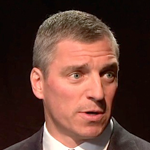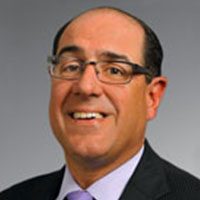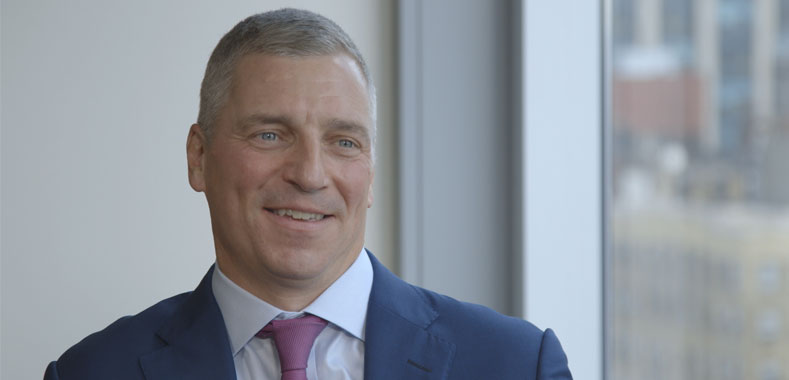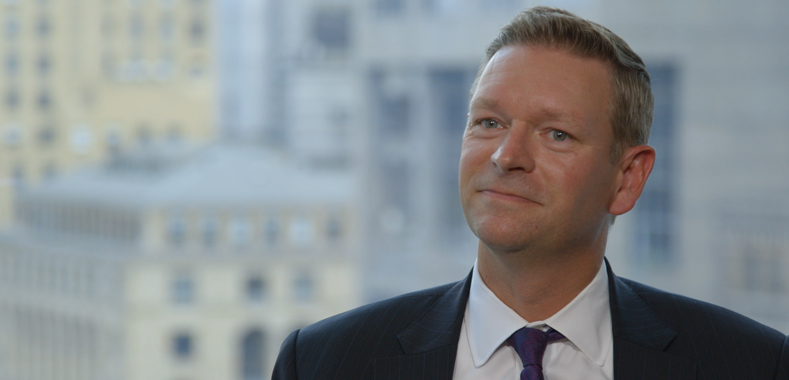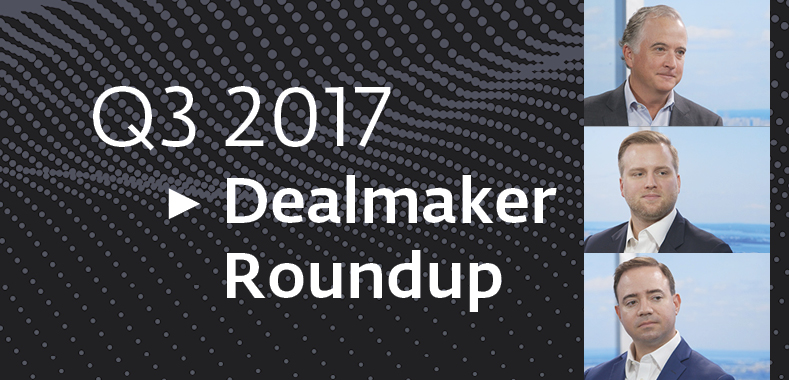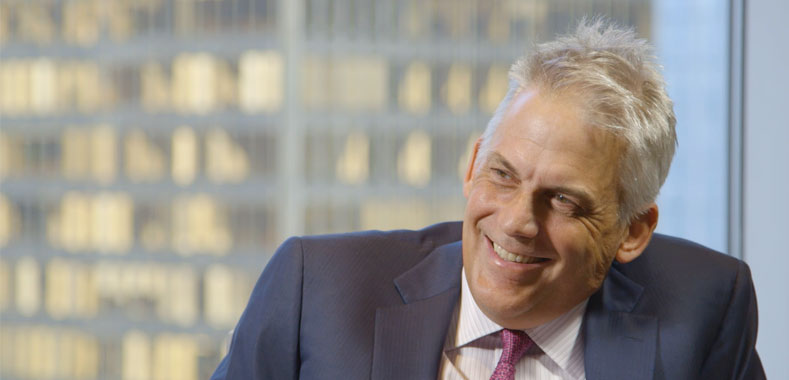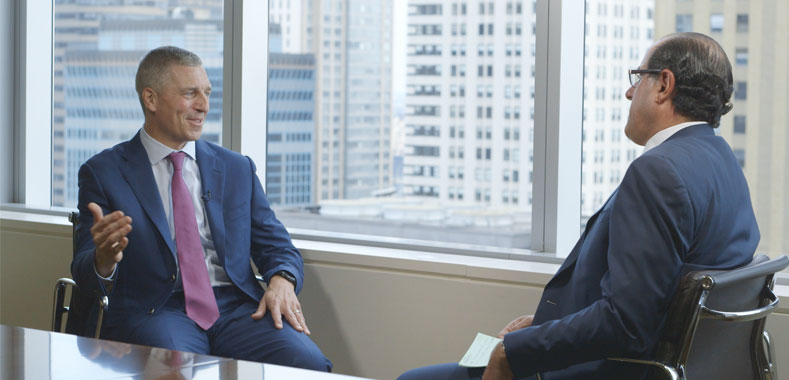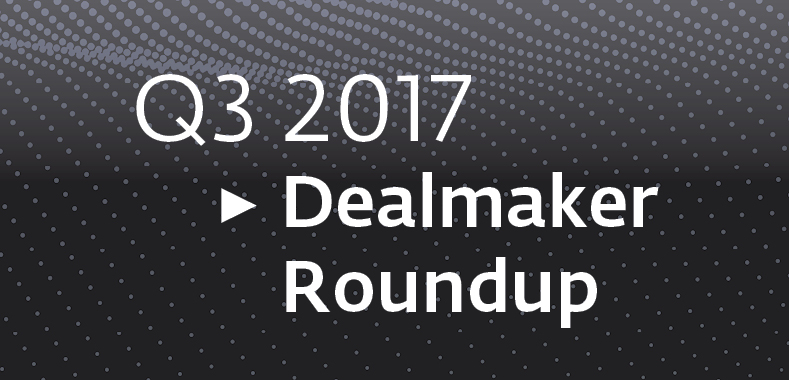Powerhouses in PE: Arsenal’s Painful Lessons
Arsenal Capital was launched 17 years ago by a 33-year-old and a 27-year-old. Today the firm is a mega-fund success, but its first three deals provided two difficult and painful experiences, says Arsenal’s Terrence Mullen. Mullen also discusses more recent deals that he remembers with both fondness and regret.
Transcript Download Transcript
Powerhouses in PE: Arsenal’s Painful Lessons
Don Lipari, RSM: Today, we’re speaking with Terrence Mullen, co-founder and partner at Arsenal Capital Partners. Welcome, Terry.
Terrence Mullen, Arsenal Capital Partners:
Thank you, great to be here.
Lipari: Terry, you founded Arsenal in 2000 with Jeff Kovach, having just rolled out of T.H. Lee. Prior to that: Morgan Stanley, undergraduate at Notre Dame, Master’s MBA from Harvard.
Mullen: Yes, sir.
Lipari: Think back to 2000. You guys are young guys rolling out of T.H. Lee and you’re starting your first fund. What were you and Jeff looking to create?
Mullen: What we were excited about was this opportunity to find high-growth companies—late ’90s into the 2000s, really driven by all the technology and innovation—and build a firm around the strategy of finding high growth, technology and innovation-rich businesses that we can scale very dramatically.
Lipari: How old were you?
Mullen: 33, Jeff was 27.
Lipari: 33 and 27.
Mullen: We were very experienced guys.
Lipari: Now, you’ve got some money. You’ve got committed capital. You’re going out to do your deals. As we said, you’re young guys. How do you convince sellers that Arsenal is the right group to team up with?
Mullen: It wasn’t quite as quick as it sounds in those couple years, because we actually got the $50 million of capital from friends and family, partners of Tom Lee, etc. We were planning on closing on $150 million second round on September 30, 2001. So, 9/11 really, of course, disrupted the entire market and we were a firm, at the moment, hanging in the balance. We needed to drive through and get to critical capital to build the team.
So, we actually found one small entrepreneur, a couple of brothers in Brooklyn, and we were focusing on what we called “specialty industrials”—chemicals, materials and this business, refrigerator and packing business. They basically were looking for a partner. Quite frankly, 9/11 spooked them a little bit, so we were able to strike an interesting deal with them, have these guys roll over and tell them we could help them do things that they couldn’t do on their own with the core group of operating partners we had hired. That was our beginning.
Lipari: Did you ever question your sanity for leaving T.H. Lee at the time?
Mullen: Yes, I would say honestly we did. In the interim of launching Arsenal, my wife and I also had triplets. Then, 9/11 came two months later. My wife and I had many funny late-evening conversations about what doesn’t kill us is going to make us stronger.
Lipari: So, immediately you’re outnumbered by your children—you and your wife.
Mullen: Yep, but we were really convicted. I will say, obviously the market was tough, but we had great conviction and pressed forward. We got our first deal done, we got a second deal done six months later, and we were off to the races. We did a third deal in 2002 and then, we closed the fund at $300 million in May of 2003.
Lipari: Making those first investments, how critical was it to get it right?
Mullen: The first deal has to be a great deal. And this refrigerant-packaging business had so many opportunities to grow. We built that business, but I’ll tell you, our second deal was our most challenging. We went into a failed roll-up play of 20 label-printing plants in the packaging space with a similar view—there were 20 things to fix. The problem there was 20, 30 or 40 things to fix. So, our second deal was our most challenging.
On our first deal, we ended up making eight times our money. On our second deal, we just had a series of successive challenges. We fixed a ton, but we just spent too much money, too much time, and couldn’t get enough growth out of the business. Ultimately, we did a structured exit where we recovered a portion of our money—about 35%. So, we lost money on the second deal.
Lipari: Oh, boy. So, a slightly rocky start. Thank god for the first deal.
Mullen: The third deal was a challenge as well because we really were—I think the strategy was right on, the model was great, but as Jack Welch says, “You got to get the right people on the bus and then you got to get them in the right seats on the bus.”
Lipari: So, some difficult lessons learned out of the box. Talk a bit more about those lessons and how you reflect upon them, even today, as you operate Arsenal.
Mullen: We’re a learning organism. The market’s constantly evolving and so are we working to evolve. The strategy and the model have been consistent from the start, but what has happened in an ever-evolving world where the pace of innovation and technology is not just continuing but accelerating—we have gone deeper and deeper into our market spaces, which has narrowed our focus.
Lipari: As you think through the 17 years that you’ve been investing Arsenal capital, can you think of one deal that, to this day, still causes you to pause and shudder a little bit?
Mullen: In my office, I’ve got the whole ledge filled up with all these tombstones, which is kind of an old-fashioned thing, I guess. I try in every deal that we do to think of the one or two things that we could have done better. We had one business in particular, a really nice engineered-coatings business. It was growing 40% in earnings year over year. We said, “Should we sell? Should we not sell?”
If we weren’t a little too greedy in the end of ’07, we probably would have sold that business for about three-and-a-half times our money. Roll forward, the financial market collapsed. We were serving the energy and aerospace industries, etc., and they collapsed. We had the opportunity in May of 2009 to sell that business for one-and-a-quarter times our money, so we lost at least $100 million of value for our investors by being too piggish.
Lipari: One and a quarter is better than a quarter.
Mullen: At that point, capital was precious. We returned the capital and a very modest profit, but it still pains us.
Lipari: Similar question, but we’ll flip the coin to the positive side of the conversation, which is with triplets…years from now, you’ll have grandkids around you and they’ll be on your knee. What deal story do you tell those grandkids?
Mullen: I would say that a couple of the companies we have built in the healthcare space are absolutely transforming the healthcare landscape and saving lives. WCG is a deal we did about five years back. We did a great buy and build in a very fragmented space, helping the quality–control auditors over the clinical trial process, and we built the most professional firm with the irresistible process and saved huge amounts of time and money for pharma companies. Along the way, we recapped that business for about $1 billion last year, four years into the deal.
We’ll probably sell it for two or two-and-a-half times our money pretty comfortably, but the more important part is the impact that we are able to have helping in the whole healthcare system.
